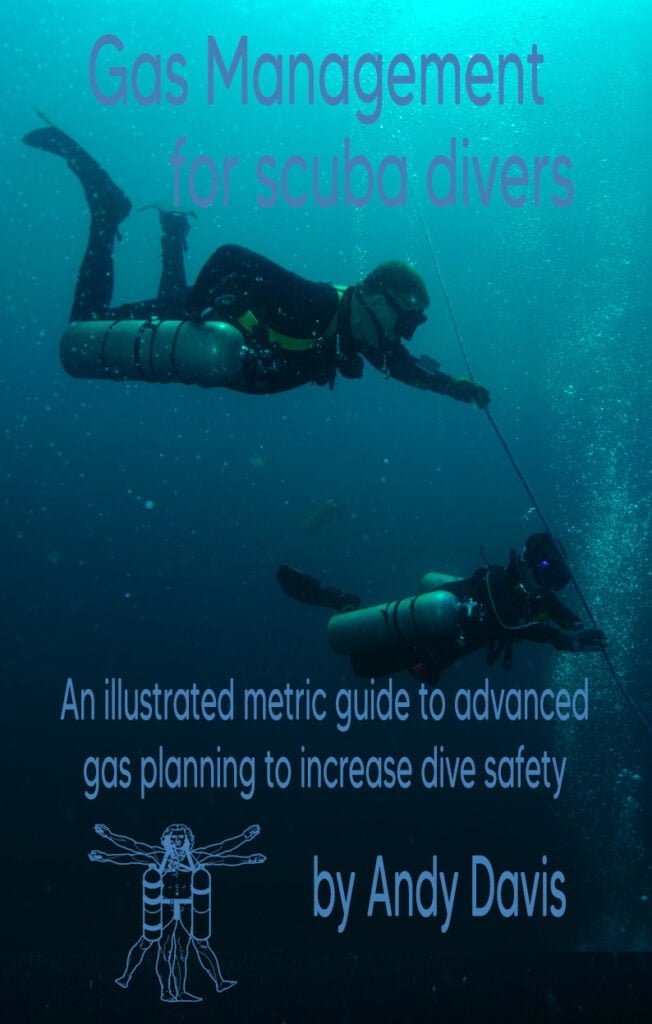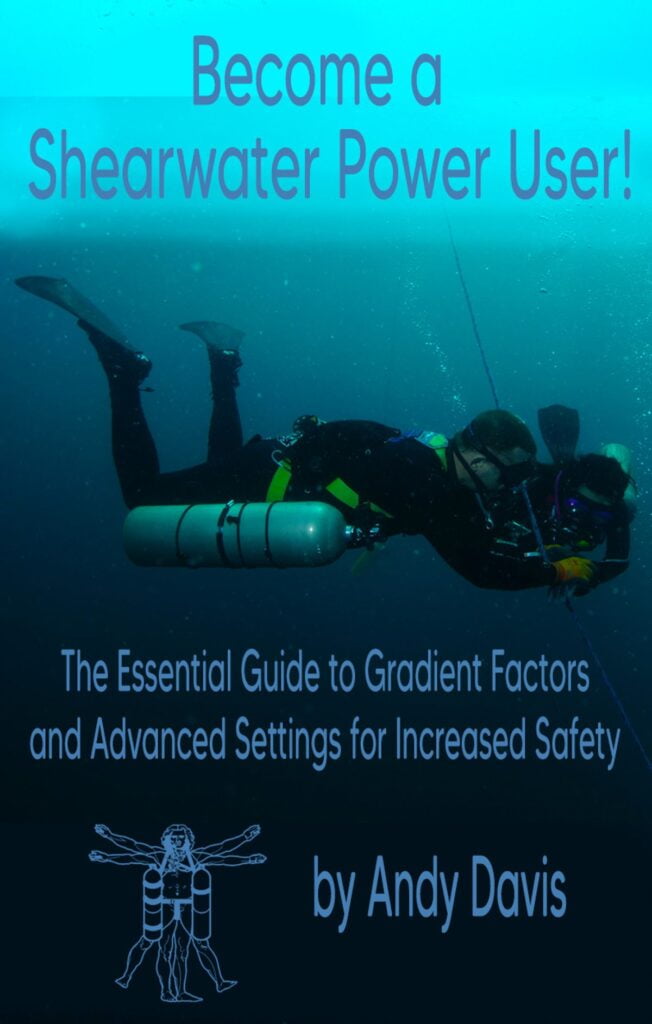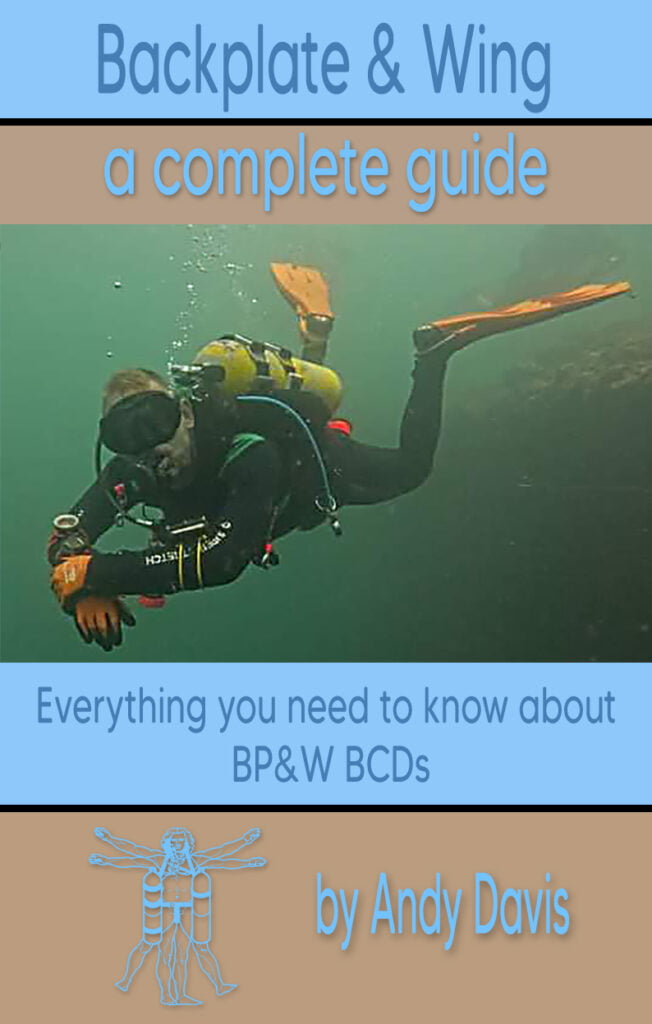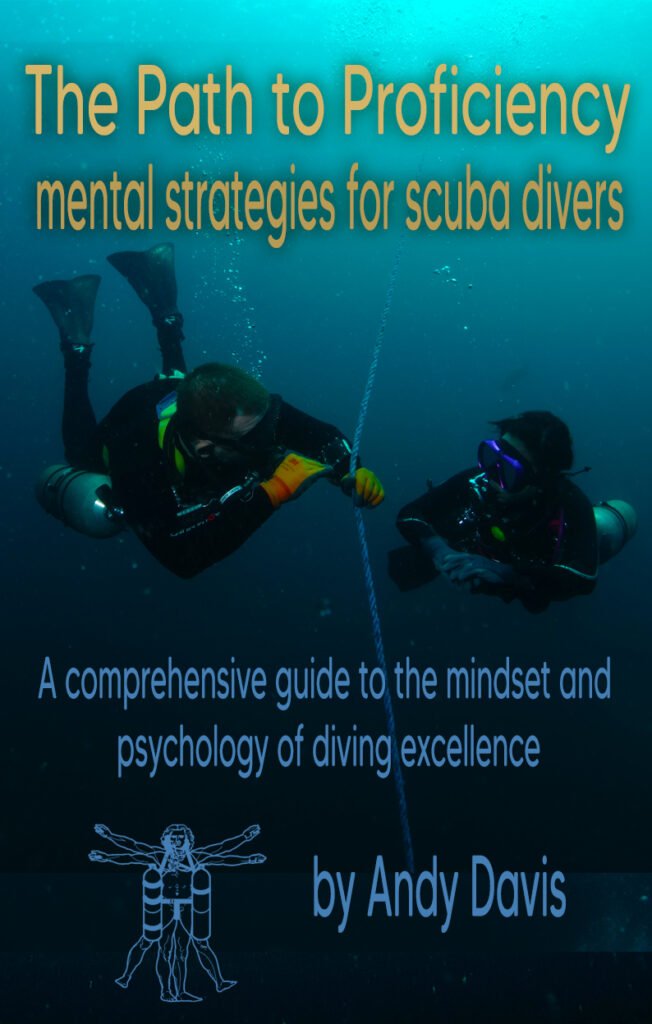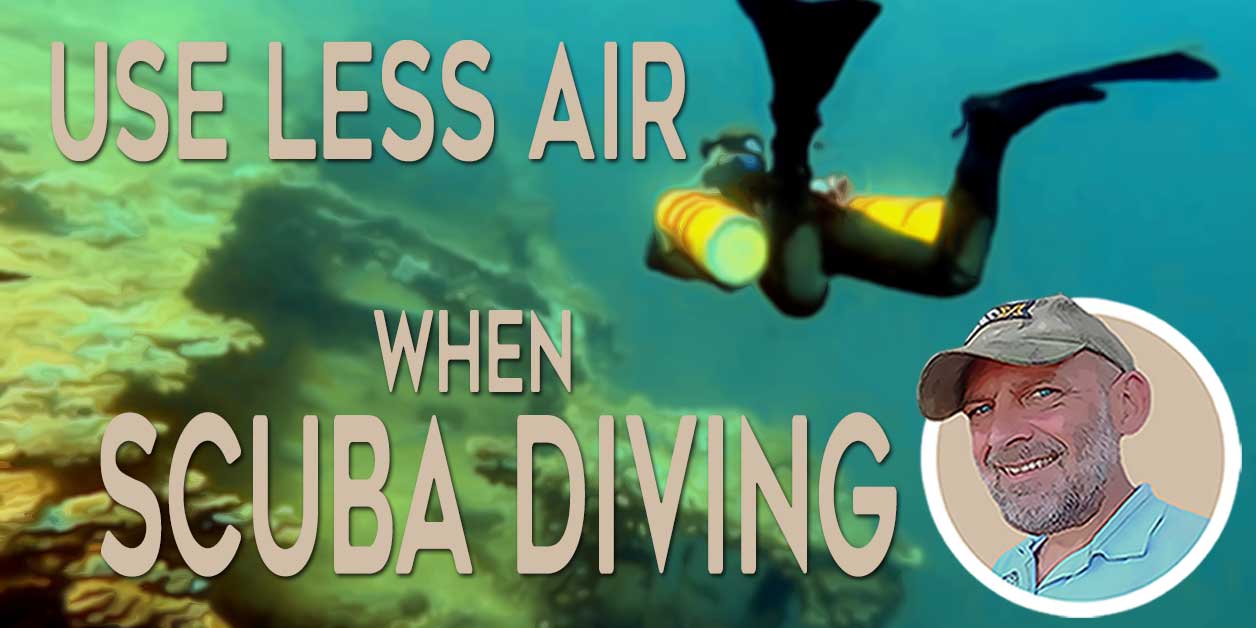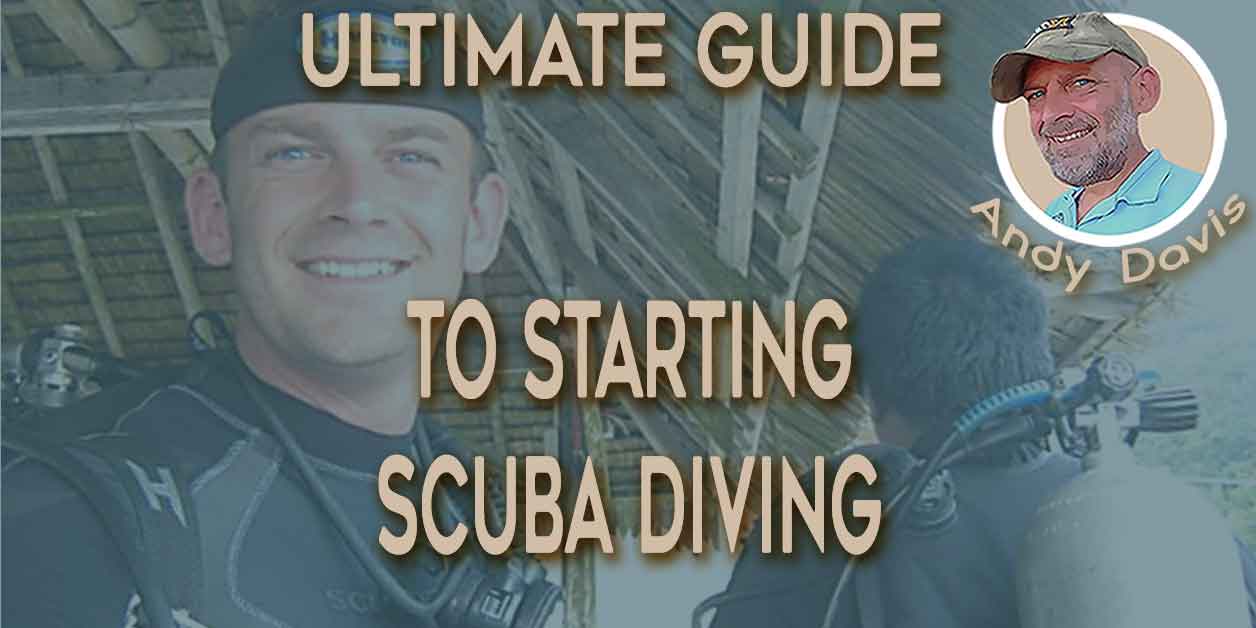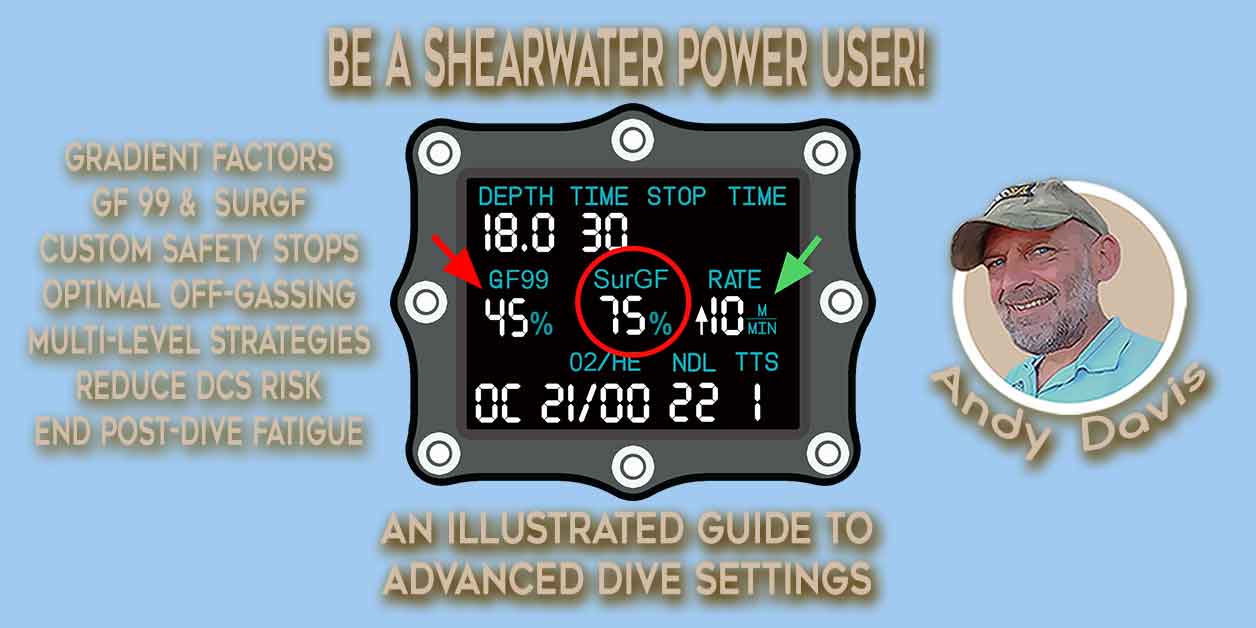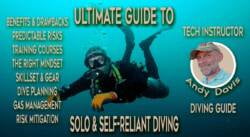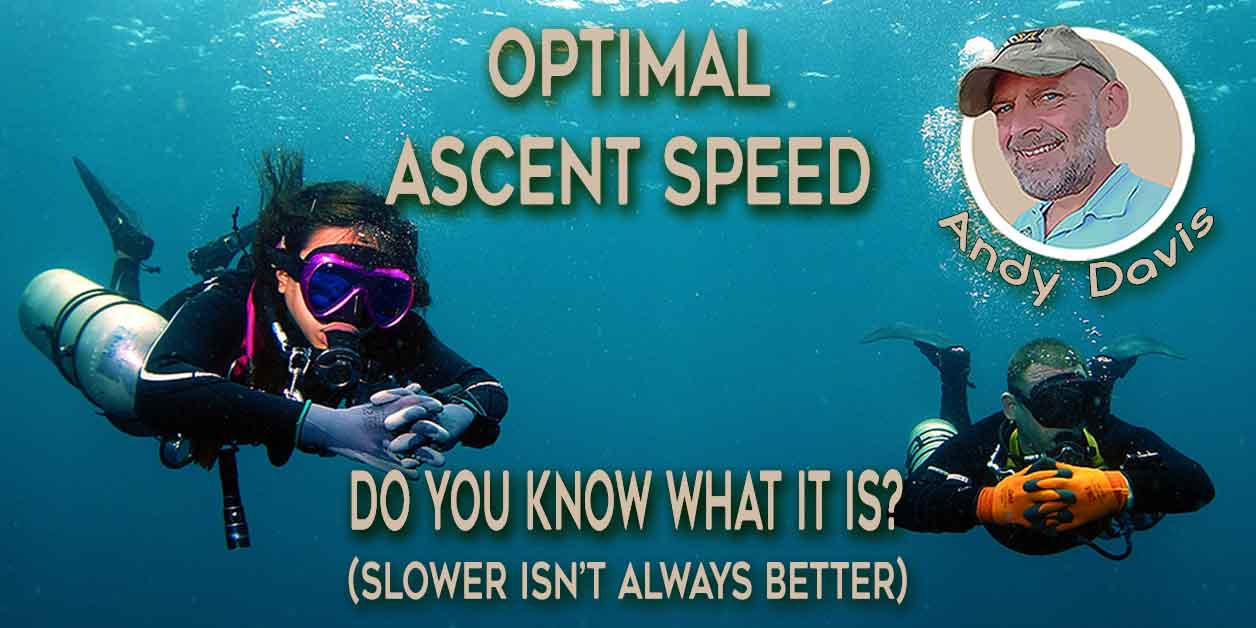How to Choose the Right Dive Center: An Honest Pro Guide
If you’re a diving enthusiast, you know the importance of finding the right dive center. Dive shops and diving resorts are an essential part of the scuba diving community. They provide services, gear, and expertise for divers of all levels.
From beginner courses to advanced technical diving, dive centers and diving resorts offer a range of services to meet the needs of every diver. Whether you’re a seasoned diver or just starting out, choosing the right dive shop is essential for your diving safety and enjoyment.
In this comprehensive guide, I will share critical tips and insider insights to help you make an informed decision when it comes to selecting a dive center.
What Services Does a Dive Center Offer?
Scuba diving is an adventure sport that requires proper gear, training, knowledge, and support. A dive center should provide all of these essential elements for a safe and enjoyable diving experience.
Whether you are a beginner or an experienced diver, the right dive center will offer the necessary services to cater to your needs.
Dive Training and Certification
Dive centers offer agency-authorized training and certification programs for beginner, intermediate, and advanced-level divers.
From open water certifications to technical diving and instructor qualification courses, these programs are intended to help you develop the skill proficiency and knowledge necessary to dive competently, comfortably, and confidently.
A good dive center employs certified dive instructors with a high level of expertise and experience to provide you with effective and efficient training for the level of diving you aspire to do.
Dive Skill Refresher Training
Dive centers play an important role in ensuring that scuba divers are always prepared to dive proficiently. One of the key services offered by most dive centers is refresher training.
Refresher courses are designed for divers who are already scuba certified but have not dived in a while and suffered from skill fade.
The objective of a refresher is to help divers regain confidence and competency with diving skills, as well as to review important safety procedures, underwater communication, and dive planning.
Dive Center Equipment Rental
Dive centers offer a wide range of diving gear for rent. This includes wetsuits, regulators, BCDs, fins, masks, and tanks.
Rental gear is a great option for travelers who want to dive while on vacation or for those who want to try out a new piece of equipment before making a purchase.
The dive shop staff should help you choose the right gear for your needs, and ensure that it is properly fitted and adjusted.
Retail Dive Gear
In addition to rental and training services, dive centers also offer a wide range of diving equipment products for purchase. This includes scuba gear, accessories, clothing, and other dive-related merchandise.
The staff at a dive shop are knowledgeable about the products they sell and can help you find the right gear for your needs.
Whether you’re looking for a scuba regulator, a dive computer, or just a funky new dive T-shirt, dive shops have you covered.
Whilst online shopping has become very popular, there is no replacement for the ability to get a hands-on feel for new dive gear.
At a dive center, divers can try on different diving suits, masks, fins, and booties to ensure an ideal fit. They can test dive computers in the store to see how they like the user interface, menu navigation, and display.
Dive Gear Repairs and Maintenance
Regular servicing and maintenance of your dive equipment are important to ensure that it is functioning properly and safely and to extend its lifespan.
Dive centers typically offer a range of equipment servicing and maintenance support, including regulator service, tank inspections, dive computer battery replacement, and repairs to BCDs, wetsuits, and drysuits.
These services should be performed by trained technicians who are appropriately qualified and knowledgeable about the specific equipment being serviced.
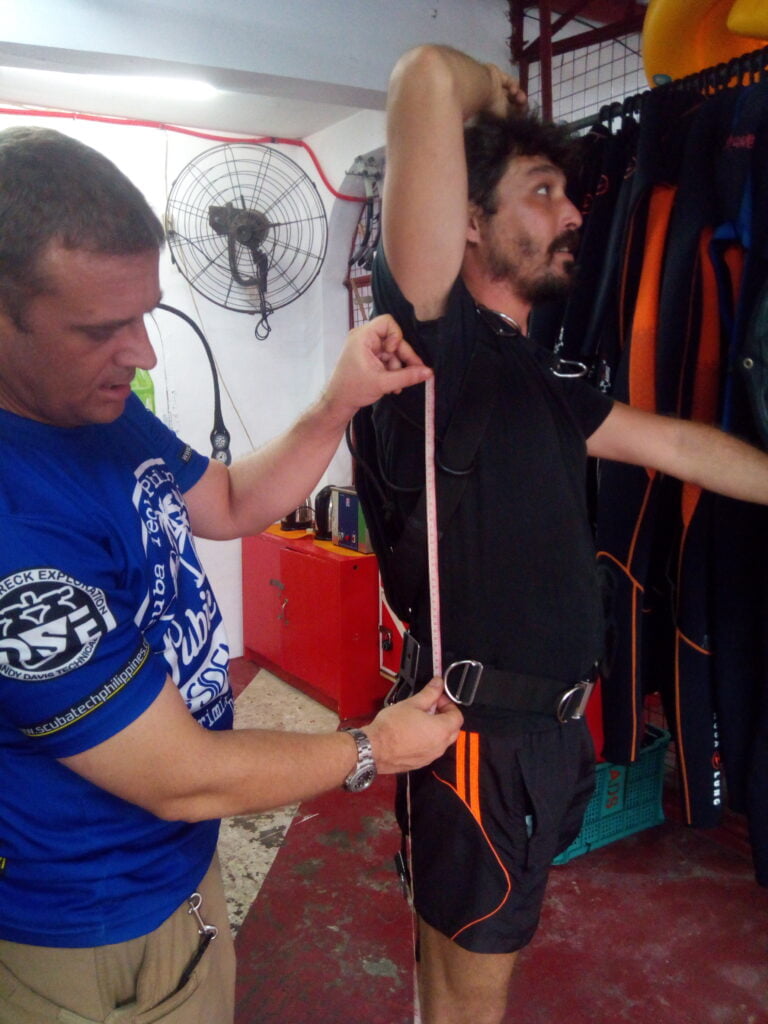
Dive Center Safety
Safety is always the top priority in scuba diving, and choosing a reputable dive center can help ensure that safety standards are met.
Good local dive shops follow internationally recognized protocols and standards, ensuring that their training programs are thorough and effective.
They also ensure that their gear is well-maintained and in good working condition, reducing the risk of equipment failure during a dive.
Dive Center Expertise
A high-quality dive center should employ knowledgeable and experienced staff who can provide expert advice and guidance on a wide range of diving topics appropriate to the types and levels of diving that they participate in.
This includes advice on gear selection, dive planning, knowledge of local dive sites, and strategies to plan future dive training to attain your long-term diving goals.
Divers of all levels can benefit from this expertise to make the most of their diving experiences and achieve their ambitions.
Dive Center Community
Dive centers can also serve as a hub for divers to meet like-minded underwater enthusiasts. They provide a space for divers to form friendships, share their experiences, and socialize.
Dive centers often organize trips and events, some form active clubs, and host social events.
By choosing a socially-active, welcoming, and inclusive dive center, divers can become a part of a vibrant and supportive diving community that enables more frequent and enjoyable participation in diving.
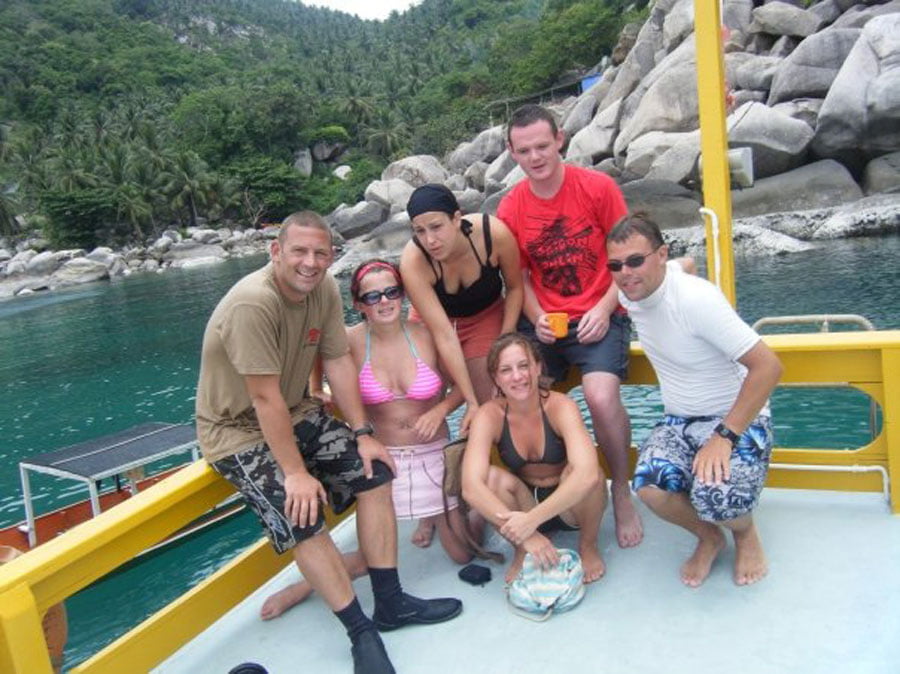
The Benefits of Choosing the Right Dive Center
There are many benefits to choosing the right dive shop, including:
- Safety: By choosing a dive shop that prioritizes safety, you can be confident that you will have a safe and enjoyable experience.
- Equipment: A good dive shop will have a wide range of high-quality scuba diving equipment, including dive computers, regulators, and dive tanks, as well as wetsuits, fins, masks, and other accessories.
- Certification: A good dive shop will have a certified dive instructor who can guide you through the experience and provide you with the necessary training and certification.
- Reputation: A good dive shop will have a good reputation for being safe, reliable, and providing high-quality experiences. They will also have positive reviews and recommendations from other scuba divers.
- Experience: A good dive shop will have years of experience in the scuba diving industry, and they will have knowledgeable and experienced staff who can help guide you through the experience.
How Does a Good Dive Center Promote Safety?
Diving centers, dive shops, and diving resorts play an integral role in ensuring the safety of scuba divers, providing diver support that is designed to mitigate risks and provide peace of mind.
High-quality dive centers promote diver safety in the following ways:
Expert Diving Supervision
One of the key ways dive centers provide safety is through expert supervision and experienced dive guides.
A high-quality dive center will employ experienced professionals who prioritize ensuring the safety of all participants.
These dive guides will be very knowledgeable about local dive sites, as well as any hazards or challenges that may be encountered. They will make prudent dive plans and take steps to avoid problems arising.
In the event of an emergency, your diving professional needs to be capable of making quick, informed decisions that can prevent you from getting hurt.
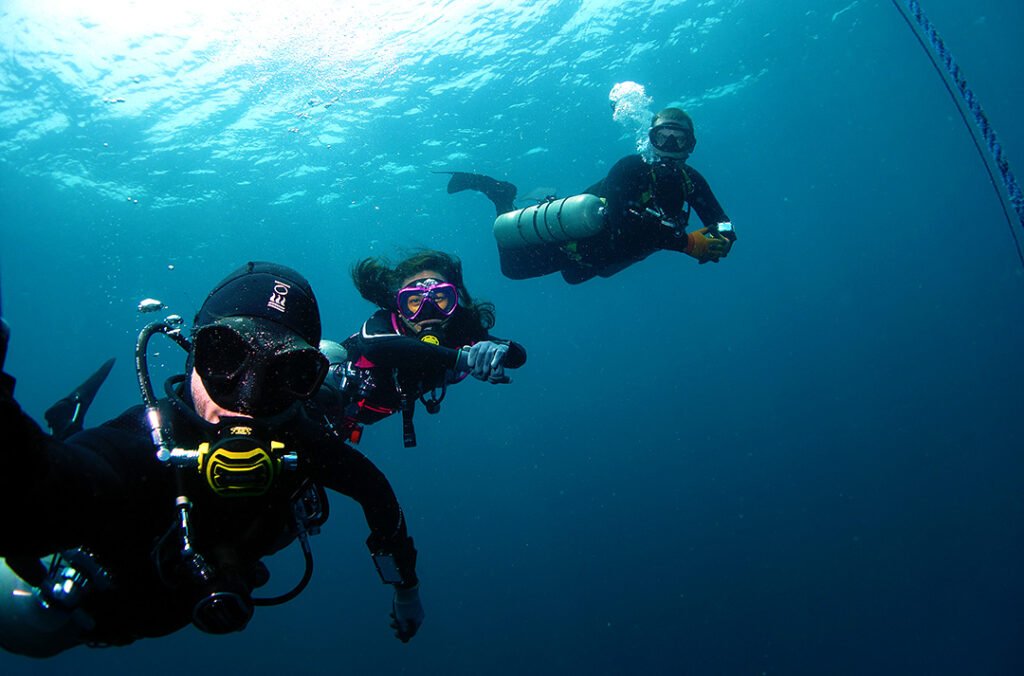
Prioritizing Risk Management
In addition, dive centers provide risk management and make important judgments to ensure diver safety.
They consider factors such as dive site conditions, dive group experience levels, and individual diver capabilities, and make prudent judgments that prioritize safety over profit or customer gratification.
For example, a responsible dive shop may decide to alter a dive plan if conditions become too challenging or to limit the number of divers in a group if visibility is poor.
Dive centers with a high standard of ethics and integrity will say “no” to divers if that is the most prudent, risk-aware, judgment to be made. They will uphold safe diving practices without compromise.
By doing this, dive centers help to minimize the risk of accidents and ensure that divers have a safe and enjoyable experience.
Rescue and First Aid Provision
Another important aspect of dive center safety is employing staff who are highly competent in first aid, CPR, and rescue techniques.
A high-quality dive center will select dive professionals who are proven capable of responding quickly and effectively in the event of a real-life emergency, providing life-saving assistance to divers who may be in distress.
A responsible dive center will also ensure that comprehensive first aid kits and emergency oxygen supplies are readily available at dive sites.
These important safety resources will be highlighted to divers as part of their introductory briefing.
Local Area Diving Experience
In addition to their expertise in safety and risk management, dive centers also provide a range of resources to help support divers prepare for their dives.
This can include dive planning tools, suggested dive profiles, dive site maps, weather and ocean condition reports, and information about local marine fauna and flora; especially if they are hazardous.
These resources help divers make informed decisions about their scuba dives and reduce the risk of accidents by allowing them to be aware of any potential hazards.
Reliable Dive Gear, Gas Supplies, and Boats
Finally, good dive centers also make it a priority to maintain and repair dive gear, accurately blend uncontaminated diving gasses, and keep their dive boats reliably functional.
They perform regular checks and maintenance on their stock of rental dive gear, compressors, and cylinders; and are fully equipped and competently staffed to effectively repair any equipment that may become damaged.
By doing this, dive centers help to minimize the risk of equipment failures that put diver safety at risk.
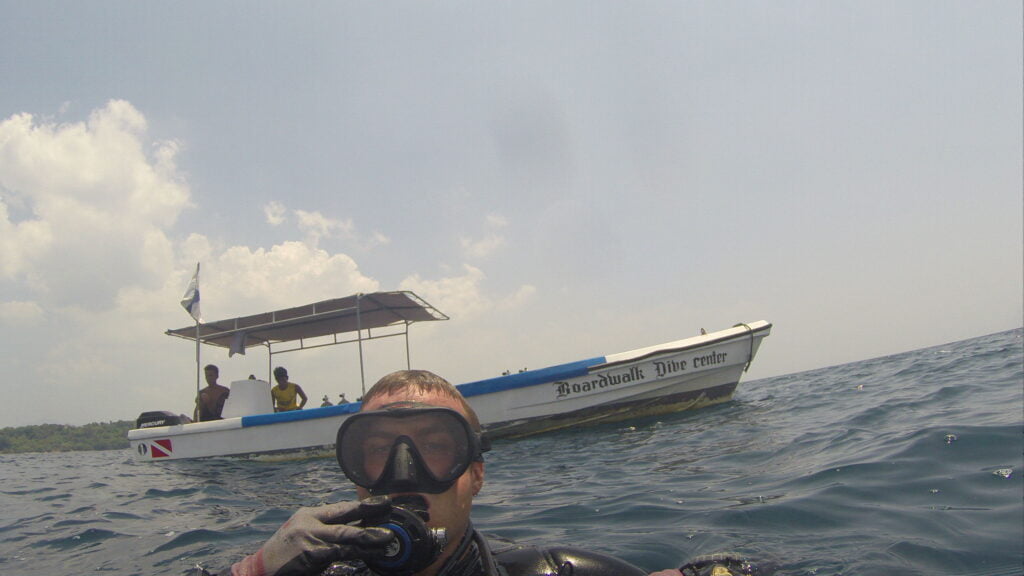
General Factors to Consider When Choosing a Dive Center
Expertise and Experience of Dive Center Pros
The expertise and experience of the diving professionals employed by a dive center should be critical factors to consider when choosing a diving center.
Ensure that you select a dive center that employs appropriately certified, exceptionally experienced, and reliably competent diving instructors and divemasters.
Is a Dive Pro Expert or Just Certified?
The dive training industry certifies tens of thousands of new instructors each year; which tends to encourage exploitative employment practices and enables dive centers to hire very inexperienced diving staff who are willing to work for very little remuneration.
Some instructors work for free, or in return for tiny commissions.
That widespread trend, especially in diving vacation areas, means that you cannot take it for granted that your dive instructor or divemaster will have an ideal minimum level of expertise and experience.
Look for a dive center that demonstrates a strong commitment to ongoing professional development for their staff, promotes modern best practices in dive training, and invests in the retention of legitimately expert, highly experienced dive pros.
Consider asking the following questions to determine the likely expertise and experience of a dive shop’s professional divers:
- Does the dive center provide continuing professional development training for its dive professionals and other staff?
- How long have the diving staff worked for the dive center?
- Are the dive instructors fully qualified at, or beyond, the level of diving that they teach?
- Are the dive professionals paid a reasonable salary that enables their long-term retention in the job?
- Are the dive staff truly “professional”, or is employment at the dive center just a side hustle, weekend hobby, or something they are dabbling with during an educational gap year or short career break?
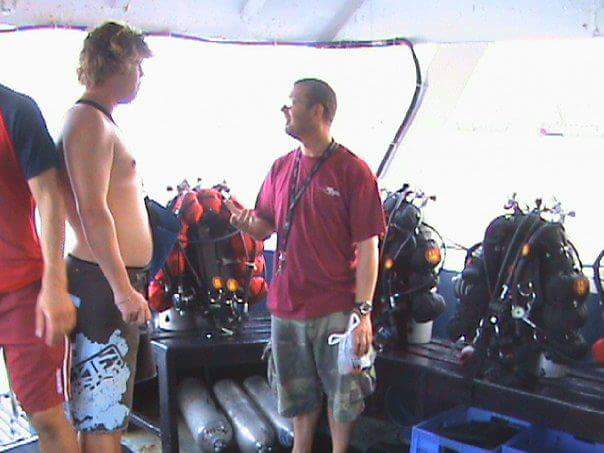
The Value of Instructor Subject-Matter Expertise
Do also bear in mind that specialist diving activities demand equally specialist subject-matter expertise from dive professionals.
There can be a huge difference in your diving safety and the enjoyability of your diving experience if you have access to legitimate subject-matter experts compared to generalist instructors.
Subject-matter expertise is the product of active, focused, participation in a specialist activity for a long duration of time.
Specialist activities may include underwater photography, videography, wreck exploration, cavern, and cave diving, or marine biology.
Whilst a dive instructor can become certified to teach “specialty courses” over a weekend, they will be far short of expertise and have little to offer beyond regurgitating what is written in the course manual.
True specialists tend to be qualified beyond the level at which they teach because they are pursuing that activity for themselves.
For example, a specialist wreck instructor may have obtained advanced or technical-level wreck diving qualifications. They are likely to have traveled around to dive at famous wreck diving locations.
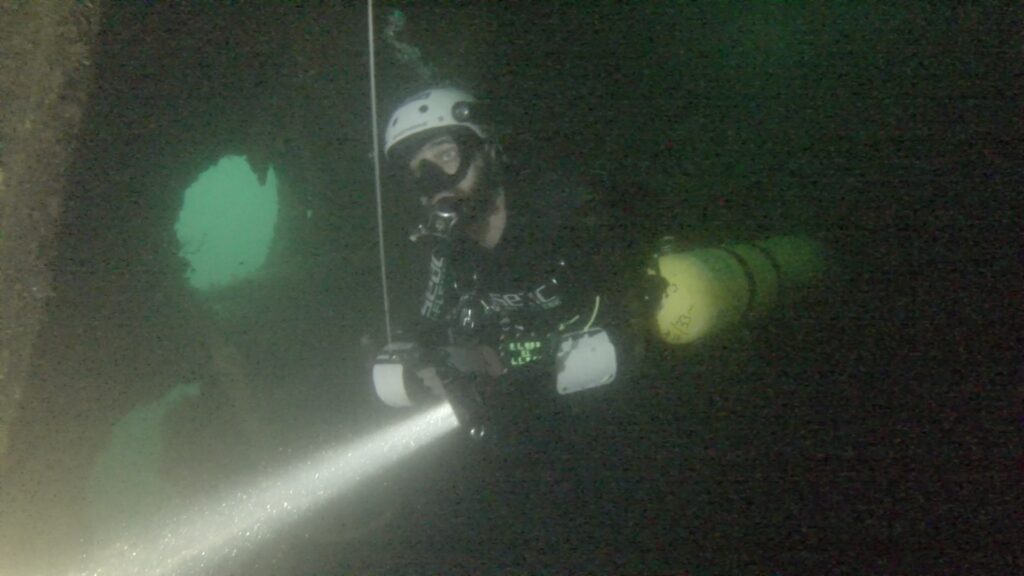
Likewise, a specialist photography or videography instructor will be able to display a portfolio of their work over years and is likely to have had their media published in magazines or on diving websites.
A specialist in marine biology may have graduate-level academic qualifications in that field. A specialist diving first aid and rescue instructor may have a background in civilian or military para-medic employment.
Being selective about finding legitimate diving subject-matter expertise adds an extreme amount of value to your training and diving.
To determine whether an instructor has subject-matter expertise, evaluate their passion for the activity. Inquire about the amount of time and frequency of participation in that specific activity.
Is it their focus and priority, or is it something they only do when it is time to sell a course? Does the dive center actively promote specialist subject-matter experts on their marketing media and websites, or do they just assign courses at random to their instructors?
Check the Dive Center’s Safety Record
Safety should always be a top priority when diving, and choosing a dive center with a strong safety record is essential. Look for a dive center that has a good reputation for safety, and ask around to see what other divers have to say about the shop’s safety record.
One of the best resources for doing this is online diving communities; such as Facebook diving groups or scuba forums like ScubaBoard.
When seeking to ascertain dive shop safety standards, is important to seek negative critique rather than simply asking for recommendations.
Less experienced divers are prone to effusive enthusiasm about whatever dive shops they have previously used but may be ill-informed or unaware of flagrant safety issues that existed during their experience with a dive center.
Does the Dive Center Advocate and Apply Safe Diving Practices?
Dive centers, and the training agencies they affiliate with, tend towards being very protective of their legal liability and reputation.
Consequently, investigating their safety record can be problematic. The next step in your research should be to consider the dive center’s attitudes and ethics toward dive safety.
Whilst it is both easy and common to make claims about being safety-focused, the reality can be more transparent through a dive center’s actions in adherence to safe diving practices.
A high-quality diving center will be uncompromising in the application of the following safe diving practices:
- Is the dive center uncompromising about customers diving within the limits of their training, experience, and comfort level?
- Do dive supervisors conduct thorough dive planning, preparation, and pre-dive briefing?
- Does the dive center use scuba equipment, compressors, and boats that are properly maintained and in reliably functional condition?
- Do the dive guides keep dives strictly within the planned depth, time and gas supply limits?
- Is there effective supervision by constantly monitoring and regularly communicating with divers throughout their dives?
- Do the dive pros show awareness of, and avoid, potential hazards, such as underwater currents, overhead environments, no-stop limits, minimum gas reserves, and hazardous marine life?
- Does the dive center, and its staff, actively promote the maintenance of neutral buoyancy, horizontal trim, streamlining, and proper weighting to divers?
- Are dives planned and conducted to ensure slow ascents and create additional conservativism by conducting generous safety stops?
- Has the dive center created written emergency plans and are the necessary resources on-site to follow those plans; including first aid kits, communications (mobile phones or VHF radios), emergency contact numbers, rescue and search equipment?
- Does the dive center stay aware of any medical conditions or disabilities that may affect their divers and take those details into consideration when planning and conducting dives?
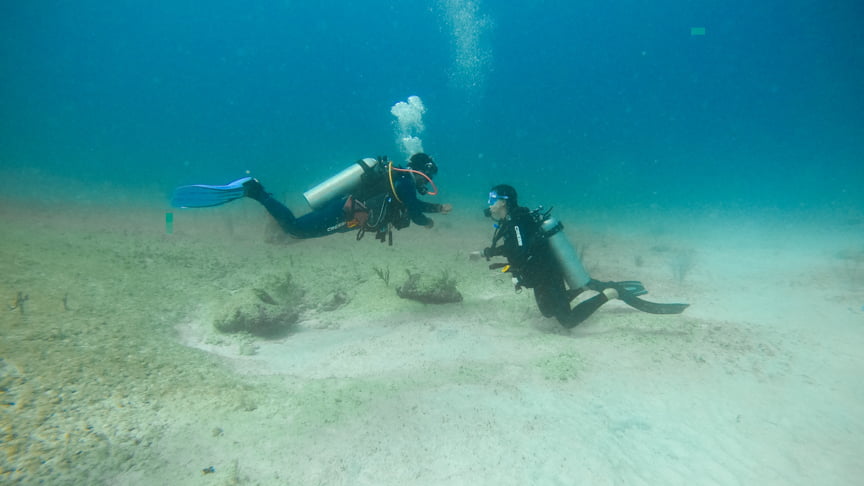
One “acid test” of a dive center’s commitment to safety is to inquire whether you can conduct dives that are objectively beyond your level of training and proficiency.
For instance; to dive deeper than you are qualified or to enter a shipwreck, cavern, or cave without specialist training and certification.
Irresponsible and unethical dive centers won’t object to that if their primary motivation is just to take your money. They will seek to gratify customer demands, with little regard for safety, rather than potentially lose those customers to a rival dive shop.
Whilst dive centers should do their utmost to make your diving as enjoyable and satisfying as possible, they must be wholeheartedly trusted to keep you safe.
Responsible risk management by trained professionals sometimes necessitates saying “no” to over-ambitious or over-confident diving customers. Respect and appreciate dive centers that refuse to compromise your safety or their own professional ethics.
Evaluate the Dive Center’s Equipment
The equipment a dive center uses is a good indicator of the level of quality and safety the dive shop provides.
Look for a dive shop that has well-maintained and frequently serviced dive equipment, a variety of gear suitable for the different types of diving offered, and high-quality rental equipment; including dive computers and pony cylinders.
Pay close attention to the quality of the equipment that a dive center uses.
It can be reflective of their overall quality and safety standards. Is the equipment threadbare and dilapidated? Are they content to put divers into ill-fitting wetsuits, fins, or BCDs? Do regulators or cylinders leak bubbles?
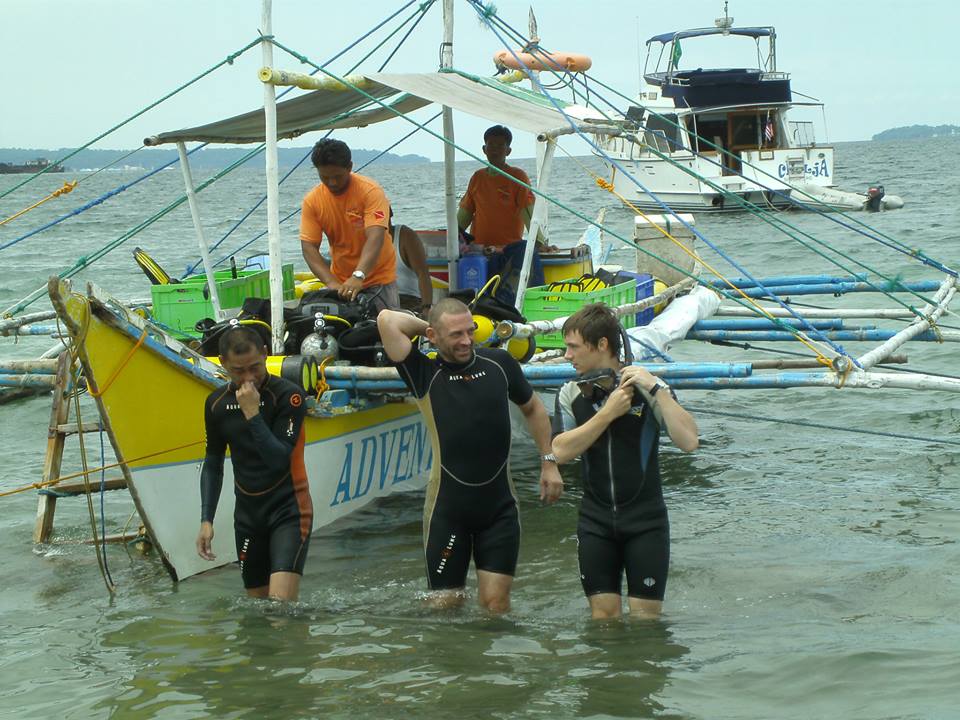
Reputable dive centers will adhere to industry standards with respect to compressor servicing, cylinder inspection, gas blending, analysis, and testing. Each of those tasks should be diligently logged.
It is within your rights as a customer to ask to see those logs. A high-quality dive center will be proud and eager to show them to you.
If the dive center offers more specialist diving activities, then it should be comprehensively and appropriately equipped for divers to conduct those activities.
For instance, if cavern, cave, or wreck penetration diving is offered, the dive center should have safety spools, reels, and suitable dive lights available for use.
If the dive shop promotes technical, sidemount, or closed-circuit rebreather (CCR) diving, they should also be able to offer reputable equipment, gas blending, and other specific supplies necessary for those activities.
What are the Dive Center’s Sites and Diving Schedule?
It’s important to choose a dive center that offers dive sites and diving schedules that align with your interests and experience level.
If you’re a novice diver, look for a dive shop that offers beginner-friendly dive sites that will not exceed your comfort level, training, and experience.
If you’re an experienced diver, look for a dive shop that offers more challenging dive sites and caters to any specialist diving activities that you are trained and motivated to undertake.
Dive Center Location and Logistics
The location of the dive center and its logistics are also important factors to consider. Make sure the dive center is conveniently located near the dive sites you want to visit to avoid unnecessarily long boat transits.
Additionally, consider the transportation options to and from the dive center and your accommodation; make sure they’re convenient and reliable.
Dive Center Price and Value
Consider the cost and value of the dive center’s services. Make sure you get a clear understanding of the services included in the price, such as rental equipment, gas fills, dive courses, and other charges.
Compare prices and services offered by different dive centers and choose the one that offers the best value for your money.
Do remember that value for money is determined by what you receive versus what you pay. Sometimes the cheapest options can be very low value for money.
Ask About the Dive Center’s Policies
Finally, it’s important to ask about the dive center’s policies. Ask about their cancellation and refund policy, their policy on rescheduling dives, their adherence to safe diving practices, and their policies on diver certification levels for the dive sites visited.
These policies can give you an idea of the level of customer service and business ethics you can expect from the dive center.
A Common Misunderstanding About Dive Centers and Training Agencies
Many divers misunderstand the relationship between dive centers and the scuba training agencies they may be affiliated with.
It is important to understand that scuba training agencies only mandate standards and apply quality assurance to certification training courses.
For their own organizational liability, training agencies do not get involved with guided diving activities that are not associated with certification courses, nor do they impose standards upon how those dives should be conducted.
The reality is that non-certification course diving is pretty much a free-for-all when it comes to dive safety and quality management.
Only the professionalism and ethics of individual dive centers ensure they operate safely and responsibly.
One thing to know is that most dive training agencies do stipulate that fully qualified and renewed-status Divemasters should conduct dive supervision.
Some low-quality dive centers employ dive guides who are not actually certified and currently renewed divemasters. This breaks agency standards if a dive center is affiliated.
You should definitely check the qualification and renewal status of the people guiding your dives.
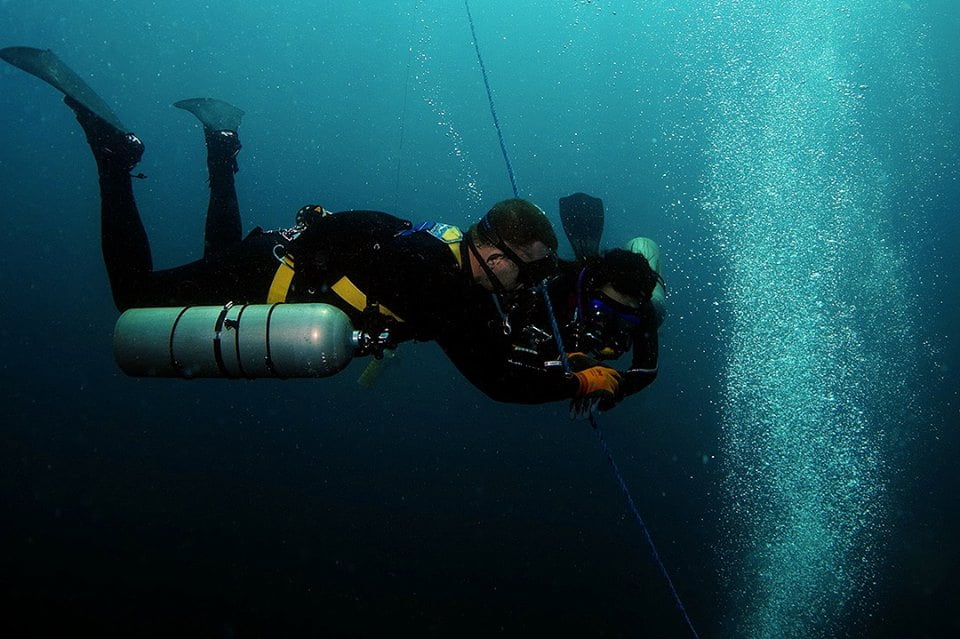
Dive training agencies do have some standards governing the risk management and safety provisions that affiliated dive centers should have.
These usually include compressor maintenance, gas contamination testing, and the supply of first aid and emergency oxygen supplies at dive sites.
With several decades spent working in the dive industry, I have never actually seen a mainstream recreational scuba agency actually audit dive centers to confirm adherence to those standards.
Investigations and remedial actions tend to only happen after accidents have occurred.
Likewise, dive training agencies do not have service quality evaluation systems for their affiliated dive centers.
When you see “5-Star” dive centers or “Platinum” diving resorts, do understand that these are absolutely not awards in comparison to other dive centers.
Primarily these are marketing scheme upgrades that dive centers have to pay for. The core factor deciding whether a dive center can upgrade its affiliation status is the volume turnover of students on dive courses.
High volumes of course sales are rarely an indicator of quality; but they can be, sadly far too often, a reflection of bargain-basement course prices.
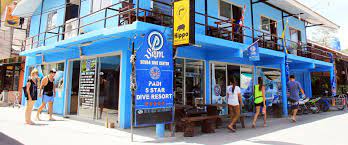
Finding a Local Dive Center Near You
Whether you are just starting out or you have been diving for years, having a reliable dive center near where you live can make all the difference in your diving experience and how frequently you get to dive.
Here are some of the key factors to consider when looking for a good dive center near where you live:
Location and Convenience
One of the first things to consider when looking for a good dive center near where you live is its location.
You want a dive shop that is conveniently located and easily accessible, so you can get to and from the shop quickly and easily.
A dive shop that is located near your home or work is ideal, as it saves you time and effort when you need to pick up gear, attend classes, or schedule dives.
Additionally, a dive center that is conveniently located near accessible dive sites can make it easier for you to plan and participate in dive trips.
Local Diving Experience of the Staff
Another important factor to consider when looking for a good local dive center near where you live is the local diving experience of the staff.
A dive center that has knowledgeable and experienced instructors and divemasters can provide you with the training and guidance you need to dive safely and effectively for the conditions in your local area.
You should also look for a dive center that has a good reputation in the local diving community, as this can be an indicator of the quality of the services and products they offer.
To get a better idea of the experience and expertise of the dive staff, you can talk to other divers in your community, read online reviews in local social media groups, or even ask the dive shop for references from satisfied local divers.
Dive Equipment Considerations
When looking for a good dive center near where you live, it is also important to consider the suitability of the dive equipment they offer for sale or rental.
For instance, in temperate and cold-water diving environments they should have a range of thick wetsuits, semi-dry and dry suits available to buy or loan.
If wreck diving is a popular local activity, the dive shop should offer suitable specialist equipment, such as safety spools, reels, and primary dive lights, to conduct those dives safely. They should also offer appropriate training to use that dive equipment.
Do also consider what brands of scuba diving equipment the dive center sells. Very often dive centers sell gear via manufacturer-dealer networks, and that allows them access to service technician courses for those manufacturers.
If you already own diving regulators, dive computers, and other dive gear, you will benefit from finding a dive center that has access to the training and service kits necessary to upkeep your equipment,
Range of Courses and Training Programs
Another factor to consider when looking for a good dive center near where you live is the range of courses and training programs offered, and the relevant expertise and experience of the instructors to provide them.
You should look for a dive center that offers courses and training programs that match your specific ambitions and interests.
Whilst many dive centers offer a generic range of mainstream scuba training, some shops progress into niche interests such as technical, wreck, sidemount, rebreather, or photography diving.
That interest will be reflected by the diving activities of their staff and their core customers.
There will be a higher likelihood of finding subject-matter expertise in dive shops that pursue specialized diving activities.
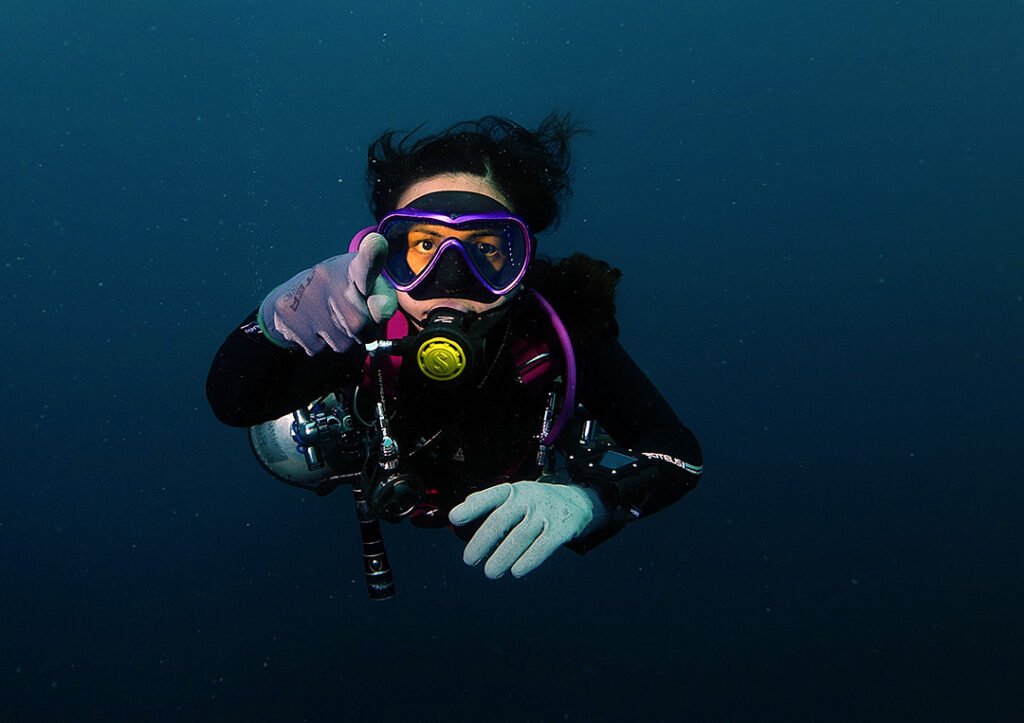
Community and Social Activities
Finally, it is important to look for a good dive center that has a strong community and offers social activities for its customers.
Having a supportive and inclusive community of divers can enhance your diving experience by providing you with the opportunity to share your passion with others, learn from their experiences, and make new friends.
A good dive center should offer regular events, trips, and activities for its customers, such as beach cleanups, dive trips, and social gatherings.
These activities can provide you with an opportunity to network and connect with other divers in your area and to learn more about the local diving community.
Socially Inclusive Attitudes
It is important to find a dive center where you will feel comfortable, accepted, and respected.
This includes inclusivity and acceptance of personal factors like sexual preference, gender orientation, ethnicity, political affiliations, or religious beliefs.
A good dive center should also include being welcoming and respectful of all levels of diver proficiency; you should avoid dive shops that promote clique behavior, elitism, dogmatic approaches to diving, or otherwise tolerate arrogant, demeaning, or judgemental attitudes amongst staff or customers.
Choosing a Dive Center On Vacation
When you are on vacation, the process of finding the right dive shop, school or diving resort is similar to the process you would use at home.
However, you may have less opportunity to inspect the dive center in person before committing to use their services; especially if booking dive trips in advance.
This makes diligent online research more important.
Planning a diving vacation is an exciting adventure, but finding the right dive shop can be challenging.
The dive center you choose can make or break your diving experience, so it’s essential to take the time to research and find the best one for your needs.
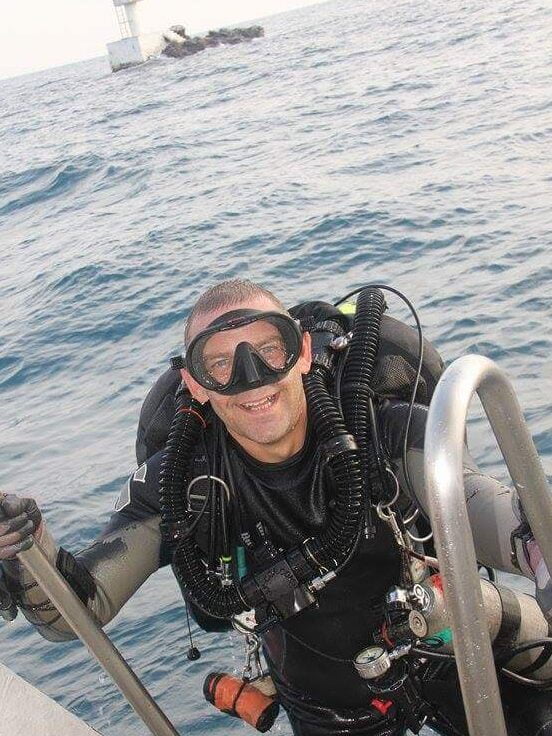
As already described, you should look for a dive center that has experienced and knowledgeable staff, a good reputation, and a wide range of high-quality equipment and services.
However, there are a few additional factors to consider when you are diving on vacation, including the location of the dive shop with respect to the accessibility of high-quality dive sites.
You should look for a dive center that is located near the dive sites you have researched in advance and want to visit.
Additionally, you should look for a dive shop that is located in a safe and secure area, so you can store your dive gear and valuables with confidence.
To help you make the right choice, I have compiled a comprehensive list of the essential factors you should consider when choosing a local dive center or diving resort on vacation.
- Communication – does the dive center respond enthusiastically and comprehensively to your inquiries?
- Location – Consider the location of the dive center. Is it near your accommodation? Is it located in a convenient place for diving? Are there multiple dive sites nearby?
- Agency accreditation – Check if the dive center is accredited by a recognized diving organization, such as RAID, TDI/SDI, NAUI PADI, or SSI. This should help ensure that the dive shop meets minimum industry standards for safety, equipment, and diving training.
- Equipment – A good dive center should have well-maintained diving equipment, including scuba tanks, compressors, and dive boats. Make sure the scuba equipment is in good condition, routinely serviced and that dive industry standards and local regulations are met. Ask to see their equipment maintenance logs to be sure.
- Staff – The staff at a dive center should be knowledgeable, experienced, and friendly. Look for a dive shop with staff members who are passionate about diving, highly experienced, and have a good reputation in the diving community.
- Customer reviews – Read customer reviews to get an idea of the dive center’s reputation. Are diving customers satisfied with their experiences? Are there any recurring issues or complaints? This information can be found on the dive center’s website or through online travel forums and websites.
- Diving options – Consider the types of diving available at the dive center. Are there daily trips to popular dive sites? Are there options for night diving, technical diving, or guided dives?
- Prices – Compare prices between dive centers. Keep in mind that the cheapest option may not always be the best. Consider the value for money and make sure you’re not sacrificing dive safety or quality for a lower price.
- Emergency procedures – A good dive center should have clear and comprehensive diving emergency procedures in place. Ask about their policies and procedures for handling medical emergencies or dive equipment failures.
- Environmental responsibility – Look for a dive center that has a commitment to preserving the marine environment. Ask about their conservation efforts, such as coral reef preservation or marine debris removal.
- Insurance and liability – Make sure the dive center is insured and has liability coverage. This protects you in the event of a diving accident or injury. Ask the dive shop for a copy of their insurance certificate, and make sure it’s up-to-date.
- Dive boats – If you’ll be diving from a boat, check the condition of the boats used by the dive center. The dive boats should be well-maintained and equipped with necessary safety equipment, such as life jackets, radios, emergency oxygen, and first-aid kits. Also, consider the size of the boat, as smaller dive boats may offer a more intimate diving experience, while larger dive boats may offer more comfort and amenities.
- Courses and training – If you’re a beginner diver or would like to improve your diving skills, look for a dive center that offers courses and training programs. A good dive shop will have experienced instructors who can help you achieve your diving goals, whether it’s learning how to dive, improving your buoyancy, or becoming a dive master.
- Special offers and packages – Some dive centers may offer special deals, such as packages for multiple dives or discounts for large groups. Look for dive shops that offer these types of packages, as they may provide a more cost-effective way to enjoy your diving vacation. Are there options for full-day dives, half-day dives, or multi-day diving trips? Do the packages include dive gear rental, transportation, and meals? Are there discounts for large diving groups or repeat customers?
- Comfort and convenience – Consider the comfort and convenience of the dive center. Is the shop clean and well-organized? Are the changing rooms, restrooms, and other facilities in good condition? A dive shop that is well-maintained and comfortable will make your diving experience even more enjoyable.
- Dive equipment rental – Good dive centers should offer rental equipment, such as dive computers, cameras, pony cylinders, sidemount tanks, technical diving configurations, and other scuba gear. If you’re traveling and don’t want to bring your own equipment, look for a dive shop that offers quality rental gear and reserve it in advance to ensure availability.
- Dive center culture – The atmosphere and culture of a dive shop can also have a significant impact on your diving experience. Look for a dive shop that has a friendly and welcoming atmosphere, and one where you feel comfortable asking questions and sharing your experiences. A good dive center should be inclusive and supportive of all divers, regardless of skill level or experience.
- Continuous education and training – A good dive shop should also be committed to continuous education and training for its staff. This ensures that the dive masters, instructors, and other staff members are up-to-date on the latest dive techniques, safety procedures, and gear innovations.
- Dive gear sales – Some dive centers may also offer dive gear sales. If you’re in the market for new gear, consider shopping at the dive shop where you’ll be diving. Not only will this support the dive shop, but you may also be able to take advantage of special deals or discounts for divers.
- Additional activities – Consider what other activities are offered by the dive center. For example, some dive shops may offer snorkeling trips, whale watching, or other adventure activities. Additional activities can enhance your diving vacation and provide a well-rounded experience.
- Dive itinerary – If you’re planning a multi-day diving trip, consider the dive itinerary offered by the dive center. Does the itinerary include a variety of dive sites and experiences? Are there opportunities for night dives or drift dives? Are there options for advanced or technical diving? A well-planned dive itinerary will ensure that you make the most of your diving vacation.
- Transportation – Find out if the dive center provides transportation to and from your accommodation. If not, consider how you’ll get to the dive shop and whether you’ll need to rent a car or take a taxi.
- Customer service – Finally, consider the level of customer service offered by the dive center. Are the staff knowledgeable and helpful? Do they respond promptly to inquiries and questions? Do they actually deal with customer problems? Do they have publicly stated business and diving policies? A dive shop that provides excellent customer service will make your diving vacation even more enjoyable.
Once you’ve considered these factors, make a shortlist of dive centers and diving resorts that meet your criteria. Schedule a visit to each one, and talk to the staff about their services and equipment. Ask about their experience and certifications, and see if you feel comfortable with their level of professionalism.
Finally, make your decision based on your research, the dive center’s reputation, and your gut feeling. A good dive center will provide a safe, enjoyable, and memorable diving experience.
About The Author

Andy Davis is a RAID, PADI TecRec, ANDI, BSAC, and SSI-qualified independent technical diving instructor who specializes in teaching sidemount, trimix, and advanced wreck diving courses.
Currently residing in Subic Bay, Philippines; he has amassed more than 10,000 open-circuit and CCR dives over three decades of challenging diving across the globe.
Andy has published numerous diving magazine articles and designed advanced certification courses for several dive training agencies, He regularly tests and reviews new dive gear for scuba equipment manufacturers. Andy is currently writing a series of advanced diving books and creating a range of tech diving clothing and accessories.
Prior to becoming a professional technical diving educator in 2006, Andy was a commissioned officer in the Royal Air Force and has served in Iraq, Afghanistan, Belize, and Cyprus.
In 2023, Andy was named in the “Who’s Who of Sidemount” list by GUE InDepth Magazine.
Purchase my exclusive diving ebooks!
Originally posted 2023-02-02 19:34:31.


